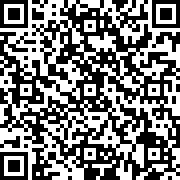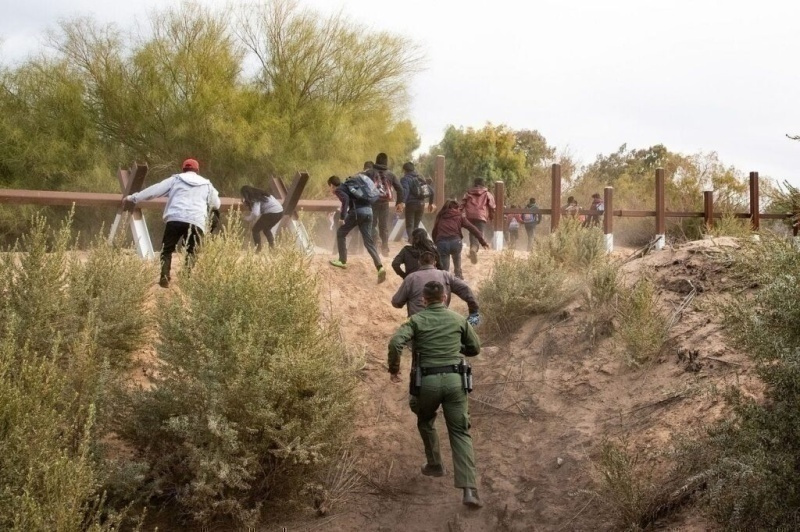As if the present were flowing toward the past, and not the future, many commentators insist on looking at the tragedies and challenges of today with the categories of the last century. Hence solidarity, in the left-wing circles in which I grew up and still frequent, seems to be activated at times only by resorting to the ideological patterns of the 20th century. Outside of these, it is darkness.
Silence on Yazidis and Armenians because they are not politically expendable. Silence on Israeli victims, when not an apology for violence – even when, as on Oct. 7, there was the most brutal attack on Jews since the Holocaust: an outright pogrom. But can old flags be enough to set limits to our empathy, as happens in so many European or American universities? And again: can one be so blind as not to see how the crises before us are entirely different and unpredictable?
Yet, already in the first hours of that terrible Saturday it was quite evident that we were facing something completely unprecedented, outside the patterns that have marked the Israeli-Palestinian conflict for decades. A combination of the most heinous violence against civilians with a systematic use of technology. Footage of torture, abuse and executions immediately flooded the net accompanied by fake videos – often artfully extrapolated from other conflicts – to feed a disinformation machine capable of exploiting the wide meshes left open by X, TikTok and Telegram. A mixture of the most brutal reality and artifice that is utterly alienating, and that risks leaving indelible traces, not only for the victims and family members, but also on the psyche of the ordinary social media consumer, stuck in front of the screen, helpless or (unfortunately, in some cases) exalted. A "psychological warfare," as historian Yuval Noah Harari called it, speaking of a situation that left an entire nation, Israel, and the world in shock. Yet, for those who have dealt with conflicts in this new millennium, it is hard not to detect an alarming evolution of a phenomenon that has already developed into a crescendo over the past decade and more.
When I was working on the Yazidi genocide, the internet was instantly overflowing with photos, videos and even magazines in multiple languages propagating the crimes of ISIS against its victims. Again, during the 2020 Karabakh conflict, footage of torture, abuse, and beheadings, as denounced by Amnesty International and Human Rights Watch. Now the same is happening in Israel. Violence recorded and shared live online. In the past, even the most vicious armies and criminals tried to hide their crimes. Today they spread them systematically, trying to reach as many viewers as possible. It is a weapon, against the victims first, terrorized and annihilated, but also against each of us. A devastating weapon that no one has yet figured out how to defend against.
Only with several days' delay, in fact, did X management declare that it had deleted "hundreds of Hamas-related accounts" and thousands of posts after the terrorists' attack on Israel. Protests by European institutions, also directed at Telegram, against videos circulated in the blink of an eye across the planet were of little or no use. I have seen many of these videos, as have millions of people, almost live. I tell you from experience: try, if you can, to protect the most fragile people – children, teenagers, the sick and the elderly – from this material.
But is it really possible to do so? No, unfortunately, or rather only to a small extent. And is it possible to regulate a technological development that opens up all kinds of unprecedented scenarios today, let alone in the future, at the speed of our scientific progress? We have failed resoundingly in this so far. The philosopher Günther Anders already after World War II spoke of an ever-growing "Promethean gap" between man and the destructive potential of his science. No need to be under any illusions: those same videos of violence in the past decade have driven thousands of young Europeans to leave everything behind and enlist in ISIS. Radicalization experts explain it to us: social media are a key element of the terrorist strategy for recruitment. They are also spots, paradoxically, in the sick minds that conceived them.
What lies ahead, then? Endless unseen possibilities and cracks that will continually open in our societies for those who want to challenge Israel, the United States and Europe. Even a security apparatus as impressive and effective as Israel's has not been enough to avert over a thousand deaths. Not to mention states such as Russia, Iran, and China, which have every interest in fanning the flames to undermine democracies and civil coexistence in the plural societies that characterize them.
As Yonatan Englender writes in Haaretz, the traditional media – TV and newspapers – came out beaten by social media in their coverage of the October 7 attacks and the conflict. It is difficult, perhaps impossible to imagine that this is a reversible process. But can we really live without a shared, democratic narrative of the world while autocracies and terrorist groups increasingly creep into our homes and consciences, exploiting this weakness and instilling hatred? We need to turn over a new leaf, leave behind the specters of a world divided by blocs – already dead in 1989 – and learn to look with new eyes at what is in front of us, starting with technologies. Making peace is not being at peace, even more so in our time: we need ideas, imagination, restlessness. We need to listen and look at the facts without the many ideological or identity dross we have inherited. We are in a tremendous need of realism.
"No matter what one thinks of Israel and the Israeli-Palestinian conflict, the way populism corroded the Israeli state should serve as a warning to other democracies all over the world," Harari writes. And so, looking beyond a geographic boundary, however militarized, is no longer just a question of morality, but of survival. For the risk, in this age marked by victimization, removal of memory and hatred, is to see ourselves transformed into our borders, into our specters.








